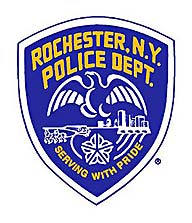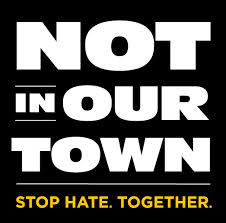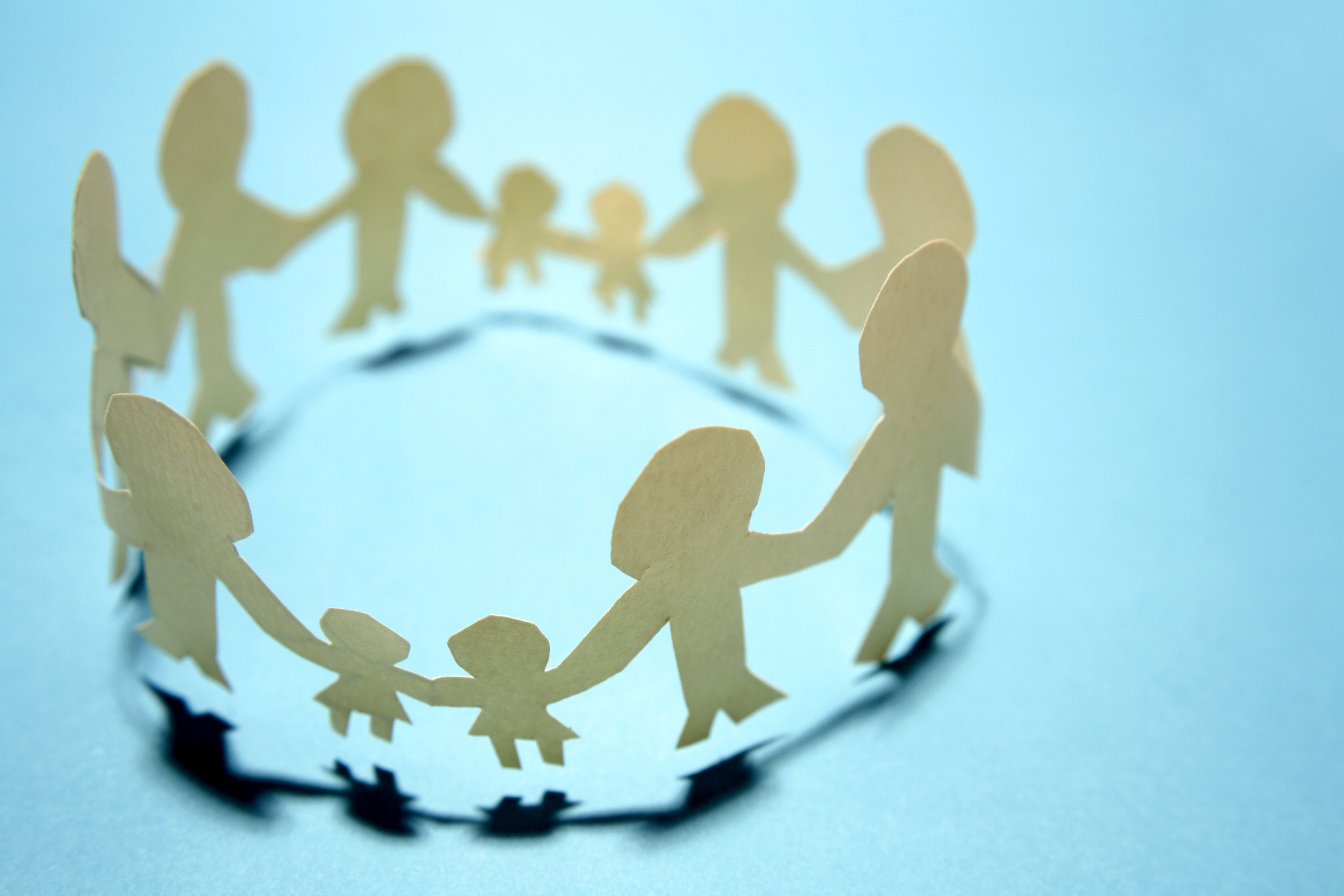Contact Us
To provide feedback on the Community Policing Dispatch, e-mail the editorial board at CPDispatch@usdoj.gov.
To obtain details on COPS Office programs, publications, and resources, contact the COPS Office Response Center at 800-421-6770 or AskCopsRC@usdoj.gov

U.S. Department of Justice
Office of Community Oriented Policing Services
Washington, DC 20530
 I have dedicated 36 years of service to the Rochester (New York) Police Department (RPD) as a patrol officer, a school resource officer (SRO), a crime prevention officer, and most recently, as the community liaison officer. As an SRO for 21 years, I found my experience working with students and staff, one of the most rewarding experiences I have ever had in law enforcement.
I have dedicated 36 years of service to the Rochester (New York) Police Department (RPD) as a patrol officer, a school resource officer (SRO), a crime prevention officer, and most recently, as the community liaison officer. As an SRO for 21 years, I found my experience working with students and staff, one of the most rewarding experiences I have ever had in law enforcement.
As an SRO, I worked in a local high school of about 2,000 ninth- to twelfth-grade students, demographically 80 percent African American, 15 percent Hispanic, and 5 percent Whites and others. As a minority police officer, I am always aware of conflicts that can surface because of racial differences. At times, home and neighborhood troubles may overflow into the school environment. These issues can be a result of misunderstandings or the absence of knowledge about others and respect for differences.
 Around April 2014, a racial issue erupted in the high school that severely disrupted the school climate. Several Puerto Rican immigrant students clashed with the African American students. As a result of these incidents, I researched safety and mediation tools to ease the racial disputes between the students. Through some of my contacts at the COPS Office, I became aware of Not In Our Town (NIOT). By connecting with NIOT, I was able to use the Not In Our Schools (NIOS) bullying prevention tools to create a safer school environment at my school. By teaching the NIOS five basic practical approaches to stop bullying and intolerance, I was able to provide valuable skills to students and staff.
Around April 2014, a racial issue erupted in the high school that severely disrupted the school climate. Several Puerto Rican immigrant students clashed with the African American students. As a result of these incidents, I researched safety and mediation tools to ease the racial disputes between the students. Through some of my contacts at the COPS Office, I became aware of Not In Our Town (NIOT). By connecting with NIOT, I was able to use the Not In Our Schools (NIOS) bullying prevention tools to create a safer school environment at my school. By teaching the NIOS five basic practical approaches to stop bullying and intolerance, I was able to provide valuable skills to students and staff.
Later, I became aware of another incident of hate and social challenges that had crossed over from the school into the community. This issue involved the Nepalese community. I learned from members of the school administration that certain students from the Nepalese community were being targets of bullying going home on the school bus. This incident had exploded to a point that Nepalese community members, who were living in a high-risk area of the city, were fighting at bus stops with African American students who were attacking their kids. Eventually, I was able to intervene to stop the incidents of racial bullying of the Nepali students. These interventions were like reconciliation meetings, where I brought both parties involved in the incident together for a meeting to go over what was occurring, any additional context, and the impact of the incidents. By allowing the students to listen and learn from one another, we were able to effectively help resolve the issues with the incident. However, at this point, I recognized what I believe was a bigger problem.
The situational violence directed toward the New American/refugee community was highly unknown to general law enforcement agencies. As an SRO, I wanted to learn more about the cultural background of the New American/refugee community to help them safely transition into our community. In May 2014, I traveled to Bozeman, Montana for the NIOT Leadership Conference. Since then, my commitment to working against hate crimes and building bridges with all communities has been my top priority.
I have worked with local organizations like the Maplewood YMCA and faith-based groups to bring awareness and resources to the areas where predominantly New American communities live. Working with other community stakeholders, I began to understand more about the nature of public safety—about protecting the New Americans from targeted attacks of hate. I also realized that New Americans communities may come from places where they distrust the police. On September 26, 2020, I was appointed to be the community liaison officer for the RPD by former mayor Lovely Warren. At the time of my appointment, the city was undergoing a tumultuous period of community protest. While in that capacity, my role was to help improve the relationships between the police and the community by implementing police reform best practices from agencies across the country, including improving community perceptions of police, establishing police and community partnerships, and building strategies to combat crime and violence.
 As part of my strategic initiative to improve the quality of public safety for the New American community, I am working with the City of Rochester's New American Advisory Council, chaired by Mr. Bijaya Khadja. This Council has representation from the following communities: Nepalese, Somali, Burmese, Asian, South Korean, Chinese, Congo, East African, and Middle Eastern. Mr. Khadja and I have organized gatherings against anti-Asian hate and worked with New American church organizations to bring awareness about discriminatory practices. During the pandemic, we have handed out hundreds of essential items such as food and masks to affected New American families. Recently, with the newly arriving Afghan families, Mr. Khadja and I have been working with different resettlement organizations, including Keeping Our Promise, to help transition the Afghan refugees safely.
As part of my strategic initiative to improve the quality of public safety for the New American community, I am working with the City of Rochester's New American Advisory Council, chaired by Mr. Bijaya Khadja. This Council has representation from the following communities: Nepalese, Somali, Burmese, Asian, South Korean, Chinese, Congo, East African, and Middle Eastern. Mr. Khadja and I have organized gatherings against anti-Asian hate and worked with New American church organizations to bring awareness about discriminatory practices. During the pandemic, we have handed out hundreds of essential items such as food and masks to affected New American families. Recently, with the newly arriving Afghan families, Mr. Khadja and I have been working with different resettlement organizations, including Keeping Our Promise, to help transition the Afghan refugees safely.
As we continue to develop this Council, it will be tasked with helping to identify resources to meet the needs of a New American community in a culturally respectful manner and to expand services in the future, including public safety and health. In addition, the Council will work to create closer, positive relationships between these communities and law enforcement. Finally, the Council will help with awareness campaigns around hate crimes, as well as assisting potential victims with reporting incidents.
I believe it's important to conduct outreach efforts with the New American families and learn from them because it not only helps them not to feel afraid and isolated again, but also helps to build stronger ties with my agency. I believe deeply that public safety and members of the criminal justice system have an obligation to help ease the often-intimidating transition of New Americans arriving in communities unknown to them and their families. By working with resettlement agencies or community organizations that work with immigrants, I want to provide a culturally sensitive lens in working with some of the complexities of their native cultures. I want to emphasize that there is a police officer working to build peace, harmony, and trust with residents of different cultures.
Moses Robinson
Community Liaison Officer
Rochester Police Department
Subscribe to Email Updates
To sign up for monthly updates or to access your subscriber preferences, please enter your email address in the Subscribe box.






